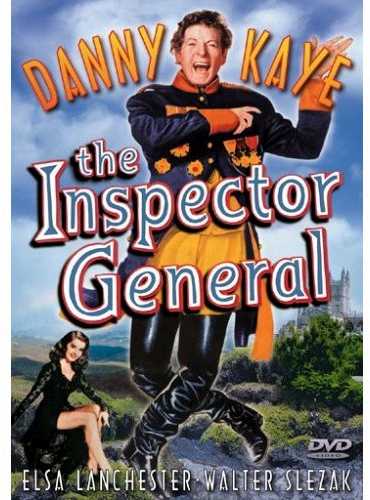Corrupting the Official

To start off I feel that suggesting that Gogol is a Russian would be a bit of an insult to the Ukrainians, especially at this point in time, since his biography indicates that his mother was Polish and the father was a Ukranian Cossack (and he also wrote in both Russian and Ukrainian, though no doubt the languages are little more than a dialect of each other – though I would not be running around Maiden Square screaming that at this point in time).
I did not realise that I would actually enjoy this play as much as I did before I started reading it, but within the first couple of pages I suddenly discovered that the theme that Gogol works with is a very common theme in a lot of modern comedies: the idea of the mistaken identity. This is similar to the idea that comes out of Shakespeare's A Comedy of Errors (which is included in the book in which I read this particular play) however the mistaken identity does not come about because of identical twins, but rather because a visitor to a small town is mistaken for a high official who is believed to be on his way to audit the town's books.
The play itself has been turned into a movie staring Danny Kaye (the video that I watched on Youtube has since been taken down):

though there are a number of differences (both minor and major) between this film and the original play
(show spoiler)One sort of wonders whether Gogol is actually being critical of the corrupt bureaucracy of the Russian Empire at the time (though it is interesting to note that even some of the most advanced states in the world are open to corruption, though sometimes the corruption is much more subtle). What we have is a bunch of corrupt officials who have effectively bought their way into office and by the strength of their wealth are able to remain entrenched in that position. However, they are then warned that an inspector general from St Petersburg is coming to perform an audit on the town's finances.

This sends the council into a tailspin because, well, they know if the books are audited then they are going to get found out and are probably going to face the chopping block. However, when a low level government employee arrives in the town the council, who have no idea what this inspector general looks like, immediately mistake this guy for the general and begin to court (and bribe) him in an attempt to get him to turn a blind eye. Obviously, having all this food and money thrown at him (especially since he has none of his own) encourages him to keep up the charade (though when he is caught out he promptly disappears from the town).
I'm not all that sure if Gogol really meant to be very deep in this play because on the face of it it looks like your standard comedy, and one that works well. Further, this is one of those plays that could easily be lifted out of this current setting and placed in any other number of settings and it will still hold true (the movie places it in the Austro-hungarian empire, though it does get confusing with the suggestion that Napoleon is the emperor, when that was not the case). What it is also suggesting is that the central beauracracy is actually not all that corrupt because the people on the fringes fear their interference, and it is also suggested that corruption becomes more evident the further out you go, though in this modern world there are many that believe that corruption exists within our central halls of power and as you go out to the fringes, the corruption begins to diminish.
 5
5


